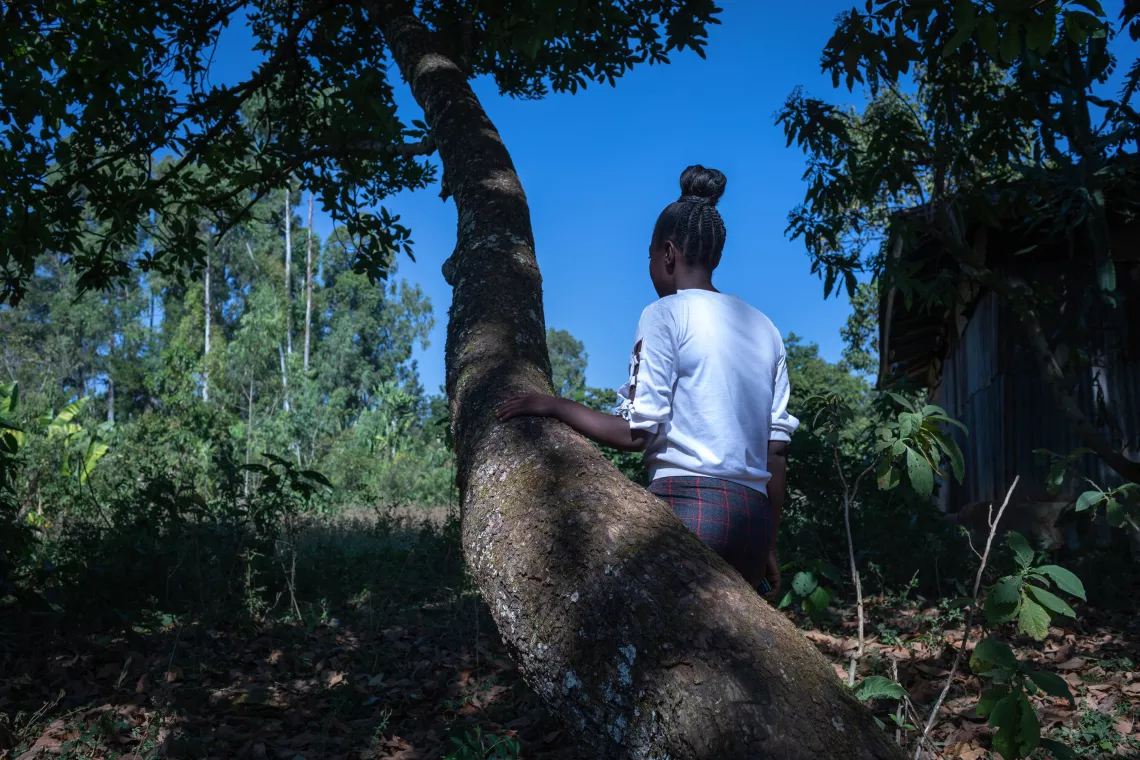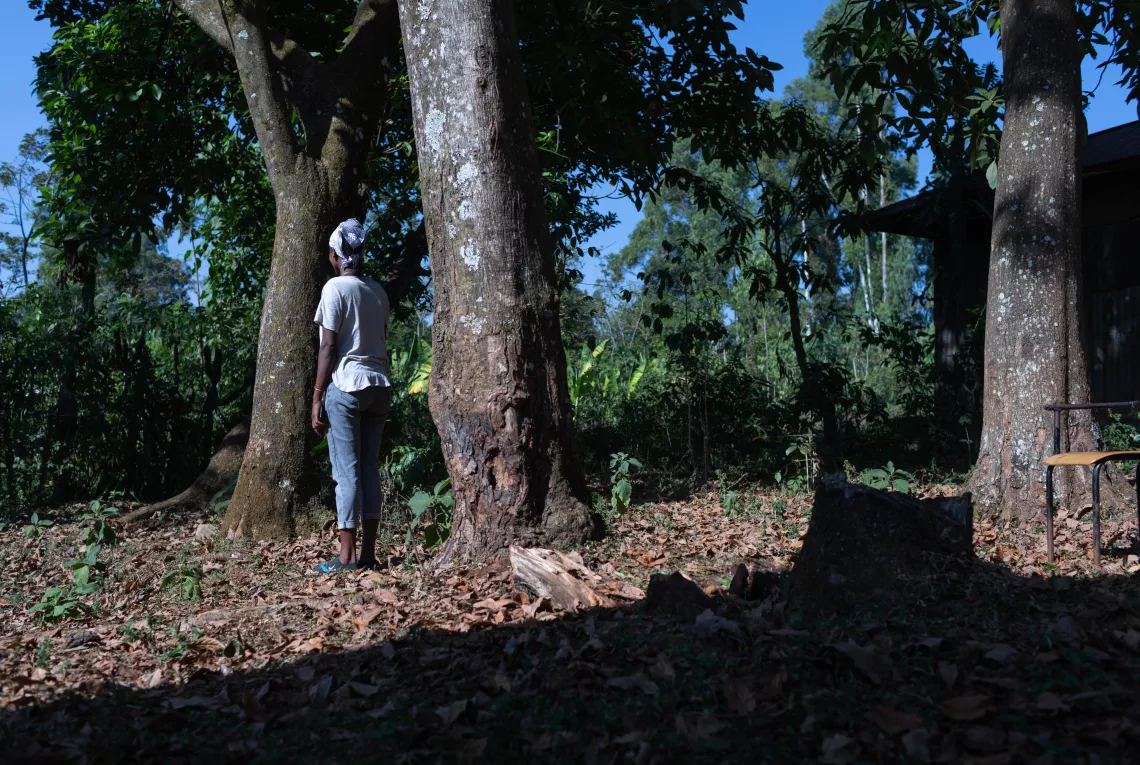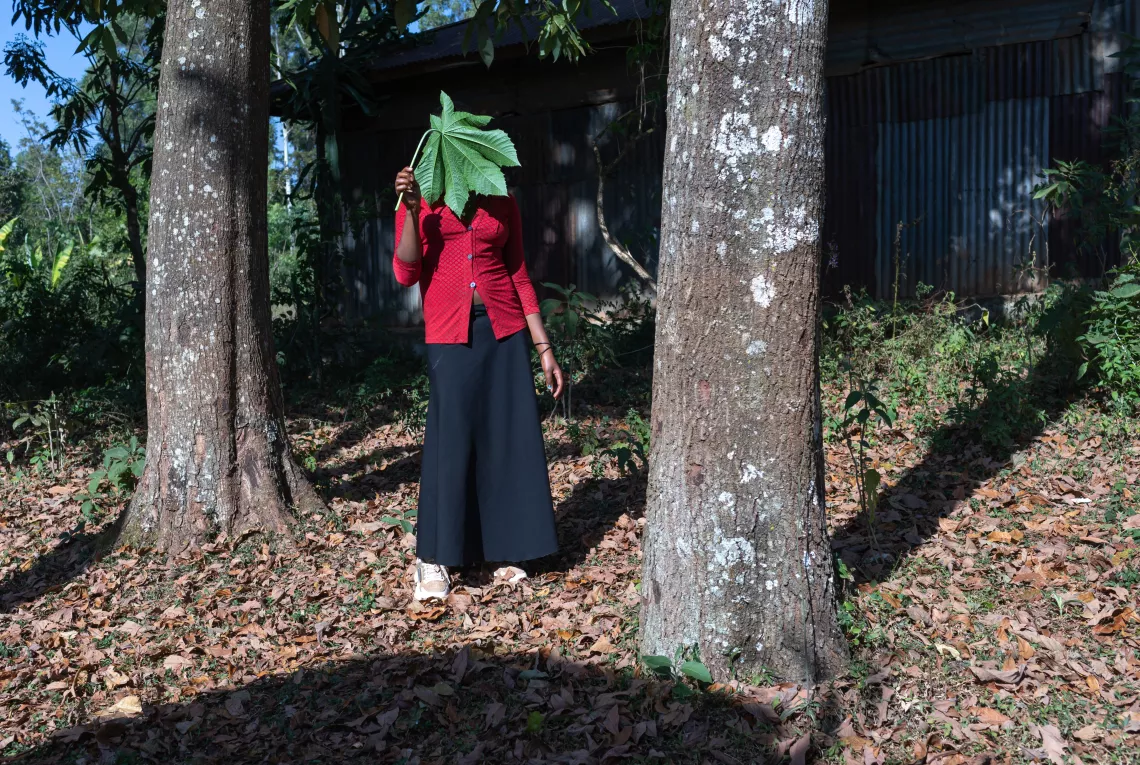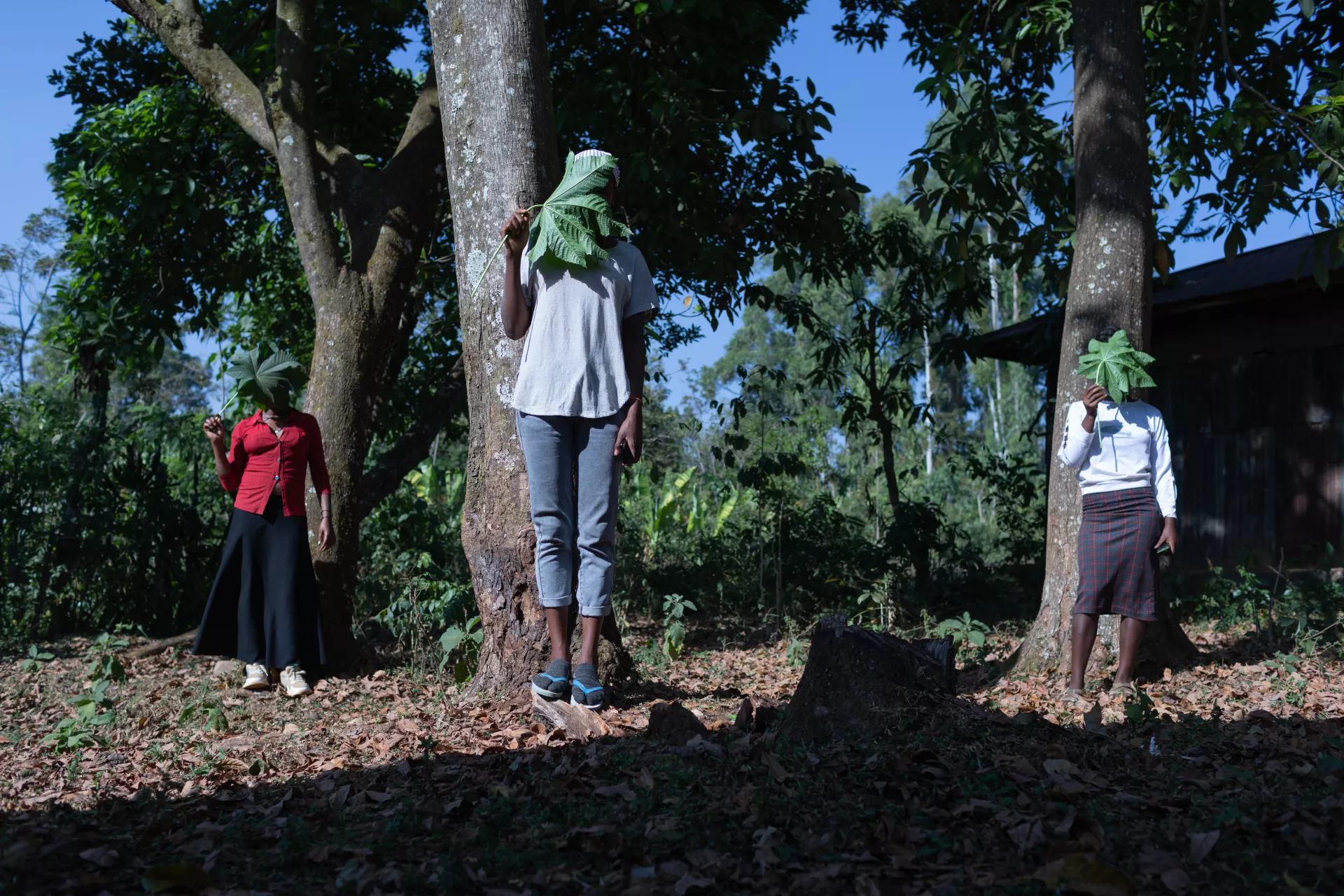The voice of young girls from Sidama region of Ethiopia
Creating a community free from female genital mutilation (FGM)
January 6, Sidama region, Ethiopia
Womanhood is a beautiful journey, but for those who have experienced female genital mutilation (FGM), it carries layers of pain and trauma. FGM leaves a scar that goes beyond physical pain. It robs young girls of the opportunity to embrace womanhood on their own terms. The shame and trauma often lingers with them for a long time. Yet in the face of these challenges, FGM survivors show strength and resilience by reclaiming their voice and advocating for a world free of harmful practices. Here is the story of three brave young girls who have experienced FGM.
In Dara Woreda (District) of the Sidama region, Aster, Beliyu, and Tejiyu are actively advocating to end the harmful practice of FGM. Aster Fikadu had experienced the impact of FGM at an early age. Bound by tradition and cultural beliefs, her family insisted that she get circumcised. Although she barely remembers the day and procedure; she remembers the pain.
“I remember feeling pain every month and experiencing it again and again. It was a constant reminder of the practice and very hard to overcome,” said Aster Fikadu with a sad face.
Aster believes that her parent’s decision was driven by a lack of awareness. So, she actively takes training to become an advocate for change. She now uses her experience to fight against the practice. Her family also advocates to bring change so that others can learn from their mistakes.
"I want to change the cultural and religious beliefs. I believe this perception is the root cause of my suffering," says Aster Fikadu.

The pressure to undergo FGM often comes from family. But for Beliyu Barsamo, a 20-year-old girl, the pressure came from her friends. They portrayed it as a rite of passage to become a well-respected woman in the community. Despite the influence, her father refused to let her endure such suffering.
Reflecting on her past, Beliyu said, “It sounds easy and simple to go through FGM, but when you hear about the consequences, it’s very difficult.” She added, “I don’t have to experience it to understand the pain.”

Beliyu now educates others about FGM and its negative impact on young girls and women. She teaches her community the physical and psychological danger. Beliyu hopes for her community to make informed decisions and protect the rights and well-being of young girls.
Tejitu Kebede on the other hand, had a very traumatic experience. Influenced by her friend, she was circumcised at the age of 11 years. Tejitu, now 20 years old, emphasizes the vulnerability of young girls to peer pressure.
“My friends took me without my family’s consent to get circumcised. Peer pressure is a real issue, especially for a young girl with no understanding of FGM,” says Tejitu Kebede.
Tejitu uses her voice to empower young girls and change the perception of the men in her community. She wants men to discard their cultural beliefs and focus on what truly matters- a happy and fulfilling life. Tejitu believes that happiness comes from embracing one's rights and freedom.
“Being circumcised does not bring blessing or happiness; it brings pain and trauma,” says Tejiyu Kebede. She added, “When I see other girls, I feel sorry for myself. No one should be forced to undergo something they don’t want or understand.”

Through the UNFPA-UNICEF Joint Programme and Global Affairs Canada Programme, young girls, and women in the Sidama region are learning and fighting to end FGM practice. General knowledge on FGM, family planning, unplanned pregnancy, and positive copying strategy are among the topics that adolescent girls aged 10 to 19 are learning from this training.
The voice of Aster, Beliyu, and Tejitu is a now testimony of positive change. Through these initiatives and training, we can create a better future for young girls and women to live free from the harmful practice of FGM.
On behalf of the girls and women and their families and communities served by the Joint Programme, UNICEF would like to thank the generous contribution of the government of Belgium, Canada, France, Germany, Iceland, Italy, Luxembourg, Norway, Spain, Sweden, The United Kingdom, the United States of America, and the European Union through spotlight initiative Africa regional programme.





Comments
Post a Comment